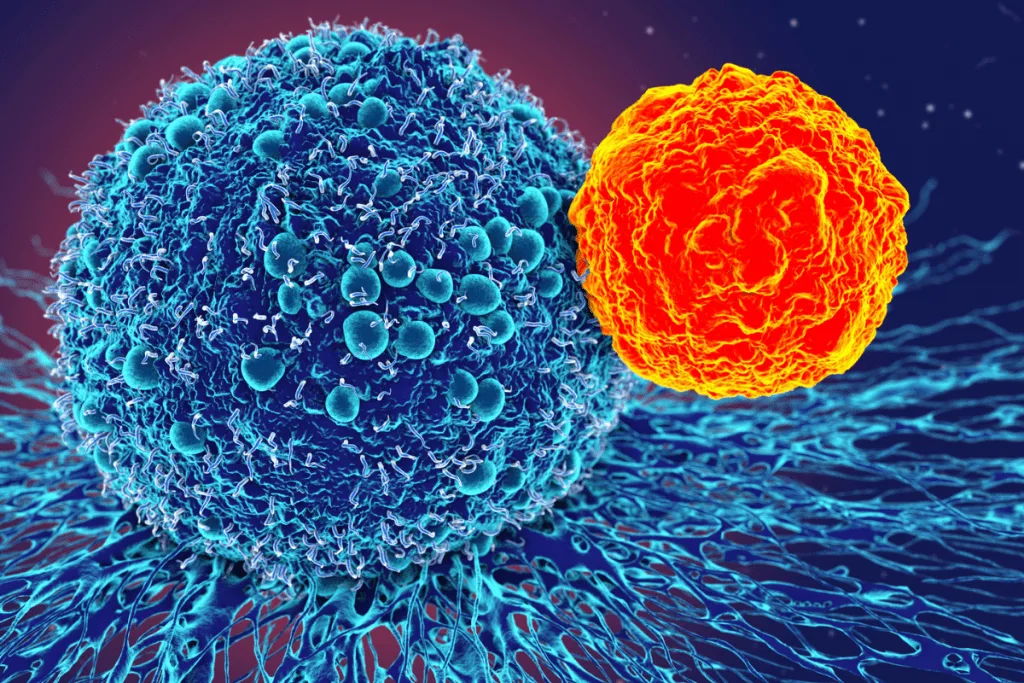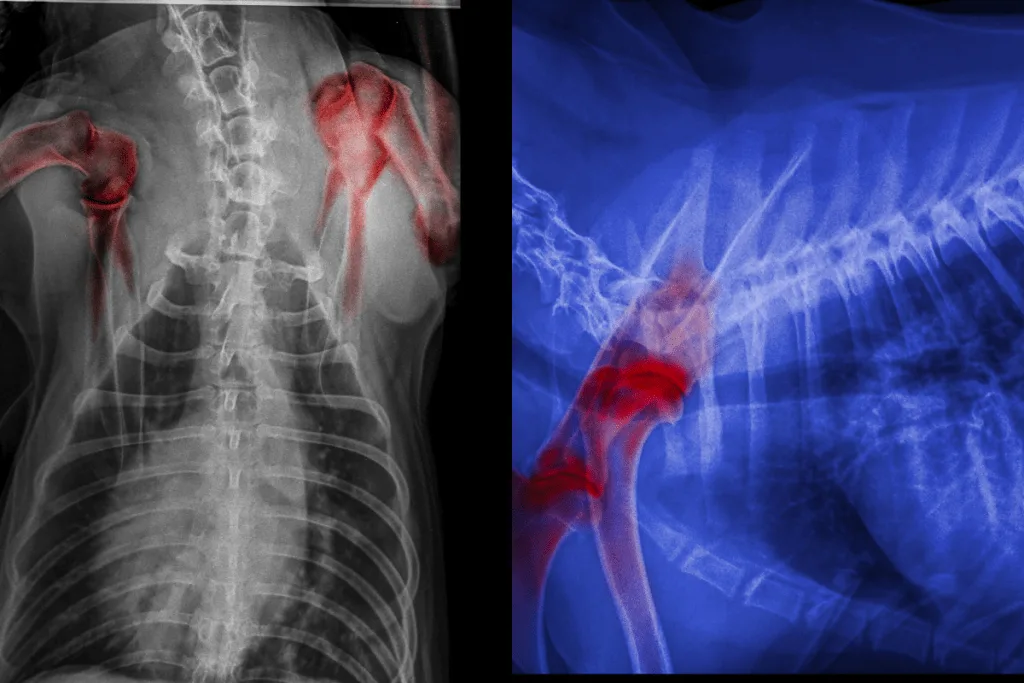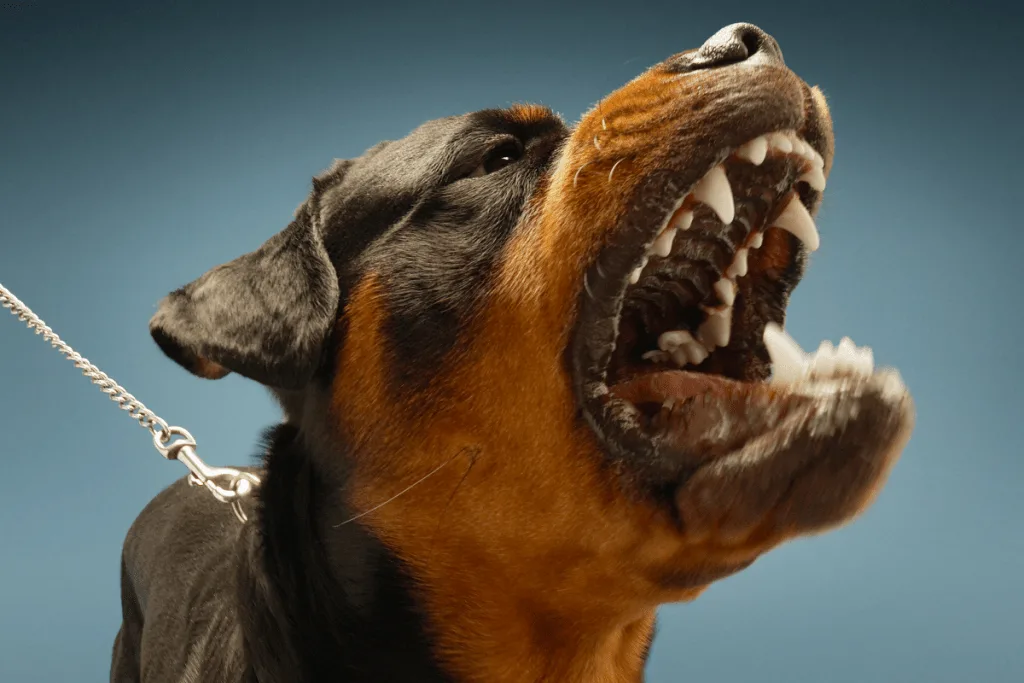
Neutering refers to the castration of a male dog, and it involves the complete removal of the dog’s testicles.
The goal of this procedure is to render the dog incapable of reproducing.
However, there are other effects that neutering produces, some good and others bad.
Neutering your Rottweiler will prevent unplanned pregnancy and testicular cancer. It can also reduce roaming, marking, humping, and the risk of some diseases. However, neutering can result in weight gain and joint problems, it costs money, and surgery is a risk.
The decision to neuter your Rottweiler or not is ultimately up to you, but you should ensure that you are aware of the pros and the cons so that your decision is an informed one.
The article below is designed to provide you with this information. Additionally, you should seek the counsel of a trusted veterinary practitioner.
Click Here to Jump to a Section
PRO: Neutering Your Rottweiler Will Prevent Unplanned Canine Pregnancies
If you have dogs of opposite sexes living in the same house, then no matter how careful you are, your risks of an unplanned canine pregnancy are significantly higher if they are not sterilized.
Here are some reasons why this scenario is so risky:
- You can keep your dogs separated while the female is in heat, but there is always the chance of someone forgetting and leaving a door open or the door not latching correctly.
- You also cannot predict when your female dog will have her first estrus cycle. Many accidental canine pregnancies occur during a bitch’s first season.
- Furthermore, female dogs can have anomalous estrus cycles. This means that they can go into heat when you are not expecting it, and so you have not implemented the necessary precautionary measures to prevent your dogs from mating.
- Finally, dogs who are sexually motivated are pretty determined. If your one hundred and thirty-five pound Rottweiler male decides to break down your door or push his way through your fence, he has a good chance of succeeding.
Even if you do not have an intact female dog, your neighbors might.
As mentioned, a determined Rottweiler male will make a plan to get to the female in heat, and your neighbors will not be happy with you, to say the least, if they find out their dog is pregnant.
This can have financial implications for you and even legal consequences in certain situations.
There could also be a few unsterilized stray bitches in your neighborhood, which your Rottweiler could impregnate, causing a whole different set of problems for you and the community.
So, neutering has the advantage of being the best preventative measure against your Rottweiler causing an unplanned canine pregnancy.
PRO: Neutering Your Rottweiler Can Mitigate Their Desire To Roam
As humans, our behavior is influenced by our instincts and hormones, but it is regulated by our ability to rationalize, make decisions, and employ self-control.
Dogs, however, lack this ability to understand or care about the consequences of mating. Their natural instincts are to breed and perpetuate their species.
As such, when an intact male Rottweiler smells a female dog that is in heat, he will try to get to her so that they can mate.
His own hormones also drive him to seek out a mate actively, even if there are no signs of one nearby.
This is what causes unsterilized male dogs to roam at every opportunity they get.
If your property fence is in any way compromised, your Rottweiler is more likely to leave your yard and more likely to wander far away if he has not been neutered.
Intact male Rottweilers can also become escape artists, which can cause you intense frustration and anxiety.
Rottweilers can learn how to open doors with lever handles (as opposed to knobs); they can push down fences or dig their way underneath them.
They can also develop the habit of door-rushing, and every time you open the front door, they will try to escape out onto the street.
Even if you effectively keep them contained, the desire to roam will still influence your Rottweiler’s behavior, and they may act out in their frustration and turn to chewing, digging, and scratching up the back of your door.
Neutering your Rottweiler will reduce the levels of the hormones that drive this roaming behavior.
However, you have to be aware that, to some extent, this can become a learned behavior.
So, if you sterilize your Rottweiler at a more advanced adult age, they may have already learned this behavior, and training will be required to counteract it.
PRO: Neutering Your Rottweiler Can Reduce Their Urge To Urine Mark
Another very frustrating and partially hormone-related behavior exhibited by male Rottweilers is urine marking.
When an adult male dog urinates, a portion of urine is not eliminated but instead remains in his body.
An unneutered male will use this retained urine for marking upright objects like trees, bushes, doors, walls, etc.
Urine marking is a natural behavior for territorial animals like dogs. This means that when they mark, they are not misbehaving, even if they do it inside the house.
If your Rottweiler does urine mark indoors, he should be trained to understand that it is unacceptable, but it is not fair to just punish him for it, no matter how infuriating it is for you.
Because a Rottweiler’s territorial instincts are partly linked to their sex hormones—they claim territories to establish dominance and mating rights—neutering a Rottweiler can reduce his inclination to urine mark.
However, there are two main factors of which you have to be aware when it comes to urine marking and neutering:
- Firstly, Rottweilers are a more territorial breed of dogs, so neutering in no way guarantees that they will not start urine marking or that they will stop this behavior if it has already started.
- Secondly, as with roaming, urine marking can become a learned behavior, which can continue even after the Rottweiler has been neutered.
Stopping your Rottweiler from urine marking should never be the only reason for neutering your dog, but it is undoubtedly a potential advantage if you decide to do so.
PRO: Neutering Your Rottweiler Can Reduce Unwanted Humping Behavior
Most people who have owned a dog know the mortification you experience when your dog starts humping things.
The mortification reaches new heights when they do this in front of guests, and you actually want to crawl into a hole if they begin to hump the guests themselves.
But mounting or humping is not just embarrassing.
It can be dangerous for your Rottweiler if the behavior gets out of control. Another dog in the park will not take kindly to being mounted by a strange dog.
One of the reasons why dogs hump is as a part of natural sexual behavior, driven by sex hormones. Neutering your Rottweiler and significantly decreasing their sex drive will help to mitigate this humping behavior.
However, humping behavior in Rottweilers can also become a habit if it is not stopped through deliberate training and sterilization.
You should also note that humping is not only a sexual behavior:
- Humping can also be a way to display dominance among dogs.
- Humping can form part of a dog’s playful behavior, especially when they are puppies.
- Humping can be used by Rottweilers as a stress release.
- Rottweilers sometimes hump objects, people, and other dogs when they get overly excited or anxious.
Suppose your Rottweiler is humping objects, people, or other dogs as a result of any of these listed factors. In that case, the behavior can continue even after your Rottweiler has been neutered.
Although, you will probably still notice a decrease in the frequency of the behavior.
PRO: Neutering Your Rottweiler Will Eliminate Their Risk Of Developing Testicular Cancer

First of all, and perhaps most obviously, neutering your Rottweiler will eliminate their chances of developing testicular cancer because his testicles are removed in the procedure.
Rottweilers are not known to be predisposed to the development of testicular cancer.
However, in a study by RL Santos et al., it was found that irrespective of breed, 9.45 percent of the 497 dogs included in the study had testicular tumors.
The average age for the development of this form of cancer was 11.46 years old.
In another study by Albert Taiching Liao et al., dogs who had suffered from cryptorchidism (a condition in which a testicle or both testicles fail to descend) were significantly more likely to develop testicular cancer than dogs without cryptorchidism.
So, if your Rottweiler has cryptorchidism, this should factor into your decision to neuter him or not.
What About Other Cancers?
While it is true that neutering eliminates the risk of your Rottweiler developing testicular cancer, you should know that there is also research that shows an increase in the incidence of different cancers in neutered dogs.
In one study by Gretel Torres de la Riva et al., the incidence of lymphosarcoma was three times higher in neutered dogs compared to intact dogs. However, the study does specify that this referred to early neutering.
The link between cancer and sterilization is a topic that scientists are often investigating, which means that there is regularly new information coming to light.
So, speak to your veterinarian about what the common consensus is among the professionals of the industry before making your decision.
PRO: Neutering Your Rottweiler Can Reduce Their Risk Of Developing Prostate Disease
The prostate is a gland, and it forms part of a male’s urinary and reproductive systems. It is a small gland, but it is associated with several diseases in dogs, two of which are influenced by sex hormones.
Benign Prostatic Hyperplasia
The first disease of concern for unneutered Rottweilers is known as Benign Prostatic Hyperplasia.
This is one of those distinctly medical terms which sound really intimidating until you break each word down.
- Benign, you probably already know, means non-cancerous, so this is not prostate cancer (prostate cancer is actually very rare in dogs).
- Prostatic obviously refers to the prostate.
- Hyperplasia is a medical term used to refer to any kind of enlargement of an organ or tissue as a result of excess cellular reproduction.
So, with Benign Prostatic Hyperplasia, the cells of the prostate start to reproduce unnaturally fast, and the whole gland increases in size.
The abnormal growth is related to testosterone, so neutering is an effective preventative or therapeutic treatment for Benign Prostatic Hyperplasia.
It is very common, occurring in approximately 95 percent of intact male dogs, but it is an old dog’s disease.
The prostate is situated right next to the bladder, and it wraps around the urethra.
This means that enlargement of this gland can press against the bladder and constrict the urethra interfering with urination and causing pain.
As cells reproduce in an unregulated manner, they are more likely to mutate and become cancerous. So, while prostate cancer is rare, benign prostatic hyperplasia may increase the risk of your Rottweiler developing it.
Neutering your Rottweiler removes the testosterone-producing testicles, significantly minimizing the risk of this disease.
Squamous Metaplasia
The second prostate disease of concern in unneutered Rottweilers is Squamous Metaplasia. Breaking down the name tells you this:
- Squamous refers to a specific type of epithelial cell, which is found in the tissue of the prostate gland.
- Metaplasia means an abnormal change.
So, Squamous Metaplasia is a disease that alters the very structure of the prostate cells, which will, in turn, affect their functioning.
The cells start to degenerate, and cysts can develop. These cysts can become abscesses, triggering all the symptoms associated with an internal infection.
Furthermore, the cysts and abscesses can put pressure on the bladder and obstruct the urethra.
Squamous Metaplasia is actually the result of estrogen acting on the prostate. Yes, male dogs produce estrogen as well, and they produce it in their testicles.
Normal amounts of estrogen do not often cause Squamous Metaplasia. But one type of testicular tumor, the Sertoli cell tumor, produces excess estrogen, and this is most often the cause of Squamous Metaplasia.
Neutering your Rottweiler removes the estrogen-producing testicles and also eliminates the risk of developing a Sertoli cell testicular tumor.
PRO: Neutering Your Rottweiler Can Reduce Their Risk Of Developing Certain Hormone-Related Diseases
Testicular cancer and prostate disease are not the only two types of conditions that neutering your Rottweiler can help to prevent. There are many other hormone-related diseases.
One of the more significant hormone-related diseases are Benign Perianal Adenomas. These are tumors of the perianal area, and they affect the modified sebaceous gland of this area.
Neutering your Rottweiler can help to prevent the development of these tumors because testosterone and estrogen both play a role in their formation and growth.
Rottweiler neutering experience – VIDEO:
You can see in the following video that, while the Rottweiler undergoing the procedure is a bit lethargic after the surgery, there are no severe side effects.
CON: Neutering Your Rottweiler May Result In Them Gaining Weight
It is a common misconception that your dog will become overweight because you sterilized him.
It may seem odd to say that this is a misconception, considering that this section is about how neutering your Rottweiler can result in weight gain.
However, in this context, there is a difference between ‘causing’ and ‘resulting in’.
For the purposes of this explanation, causing refers to a direct relationship, i.e., if you neuter your Rottweiler, he will gain weight. This is an untrue statement.
Resulting in, on the other hand, indicates an indirect link between the two factors.
The link is this: if you neuter your Rottweiler, you alter his metabolism, and if you do not adjust his eating and exercise to account for this change, then your Rottweiler may gain weight.
Weight gain is unhealthy in any dog, but in a dog the size of a male Rottweiler who is healthy at one hundred to one hundred and thirty-five pounds, excess weight is extremely stressful on his skeleton, muscles, and organs.
Your Rottweiler’s body should adjust to its new metabolism, but during the first few months following the operation, it will be important for you to figure out what your Rottweiler’s new eating and exercise requirements are.
CON: Neutering Your Rottweiler Is A Cost
The neutering procedure is less invasive than the spaying procedure (except in the case of cryptorchidism), so it is less expensive, but it is definitely not a negligible cost.
The actual price for neutering your Rottweiler will depend on where you live, what rates your chose veterinarian practice charges, or if you use a low-cost community-driven facility (like the ASPCA).
Please note that the cost of neutering your Rottweiler should never be the sole reason for not doing it.
Ideally, you should decide if you want to neuter your Rottweiler or leave him intact before you get him.
If you think that the advantages of neutering a Rottweiler make it the responsible decision, but you cannot afford the surgery, then it might be best to save up for the neutering before you get your dog.
Fortunately, neutering is a once-off procedure, so it is a once-off cost.
CON: Neutering Your Rottweiler Involves A Non-Life Saving Medical Procedure
Any surgery has risks attached to it, so even though neutering is minimally invasive, the following risks still need to be considered when making your decision:
- There is a risk of infection at the wound site.
- There is the risk of a localized infection becoming a widespread, internal, and difficult to treat infection.
- The use of a catheter means that there is a risk of a urinary tract or bladder infection.
- There is the risk of excess blood loss.
- There is the risk of sensitivity to the anesthetic.
Probably the biggest issue here is the potential sensitivity to the anesthetic.
Sterilization is most often the first time a dog receives an anesthetic, and until they have been exposed, you cannot know if they will have a negative reaction.
One thing that can help you is how your Rottweiler responds to his shots. If he has a severe reaction to the vaccinations, then you should seriously consider not neutering him.
CON: Neutering Your Rottweiler Too Early Can Lead To Joint Issues

Rottweilers are a big dog breed in terms of both height and weight. Their joints have to be very strong to support their frames.
Research shows that 8 percent of intact male Rottweilers suffer from at least one joint disorder.
Research also shows that neutering a Rottweiler can increase their risk of developing problems with their joints like hip dysplasia, elbow dysplasia, and cranial cruciate ligament tears.
However, this is specifically related to early neutering.
A large dog, like a Rottweiler, grows and matures slowly in a naturally evolved design to keep the skeletal and muscular systems as healthy as possible.
One of the major contributing factors to healthy bone and muscle development are the sex hormones.
Neutering your Rottweiler within the first six months after birth can increase their chances of joint problems by as much as 10 percent.
Neutering them between six months and one year of age can increase the risk by an even more astonishing 22 percent.
Consult your veterinarian, but the best option may be to only neuter your Rottweiler when he is fully matured at eighteen to twenty-four months old.
Will Neutering Your Rottweiler Calm a Rottweiler Down?
Rottweilers are not low-energy dogs, despite their lumbering frames.
Sometimes, people do not realize just how much energy their giant puppy is going to have and how much exercise they need to stay calm.
Often people look to sterilization as a way of calming their dogs down, but this is not a viable option.
Yes, reducing the influence of testosterone can make your Rottweiler more relaxed in certain situations compared to intact dogs. But ultimately, it does not significantly influence how calm your dog is.
What you need to do is ensure that you are feeding your Rottweiler a balanced diet, give them the correct amount of exercise every day, take them for training classes, and make sure that you meet their affection needs.
These factors are far more likely to calm your Rottweiler down than neutering him will be.
Can Neutering Your Rottweiler Reduce Aggressive Behavior?

You may have noticed that reducing aggressive behavior was not listed as a pro for neutering your Rottweiler. This is because the idea that sterilization mitigates aggression in dogs is complicated.
The AKC reports a study done by Dr. Benjamin Hart et al., who found that neutering only reduced aggression in twenty to thirty percent of the dogs included in the study.
Some forms of aggression, such as same-sex aggression or dog-dog aggression, are more likely to be mitigated by neutering your Rottweiler.
This is because these behaviors are linked at least partially to territorialism and dominance, which are, in turn, influenced by the levels of a male Rottweiler’s hormones.
Territorialism and competing for dominance are absolutely traits that neutered dogs can still display, but they are usually displayed to a lesser extent than in Rottweilers who have not been neutered.
Same-sex and dog-dog aggression, as well as fear aggression, can also be relatively successfully addressed with socialization and training.
However, some Rottweilers display undue and generalized aggression, which is not a normal trait for a Rottweiler. Rottweilers should be confident and protective, but they are not supposed to be problematically aggressive.
If they are unduly aggressive, it is often a genetic temperament flaw that neutering will not improve.
Although some people do recommend neutering a Rottweiler with an aggression issue. Not to reduce the aggressive behavior, but rather to ensure that the genes are not passed on.
Remember that breeding aggressive Rottweilers is one of the reasons why these lovely dogs have such a bad reputation.
Final Thoughts
Research currently indicates that neutered dogs live longer than intact dogs, but this is just an overall point in favor of neutering, and it certainly does not apply to every single dog.
When deciding on whether you should neuter your Rottweiler or not, you need to consider all the benefits and drawbacks because some might matter more to you than others.
Additionally, some factors might matter more to you than they do to other people, so nobody else can make this decision for you.
However, you should definitely speak to a trusted veterinary professional to help you understand all of the current research.
